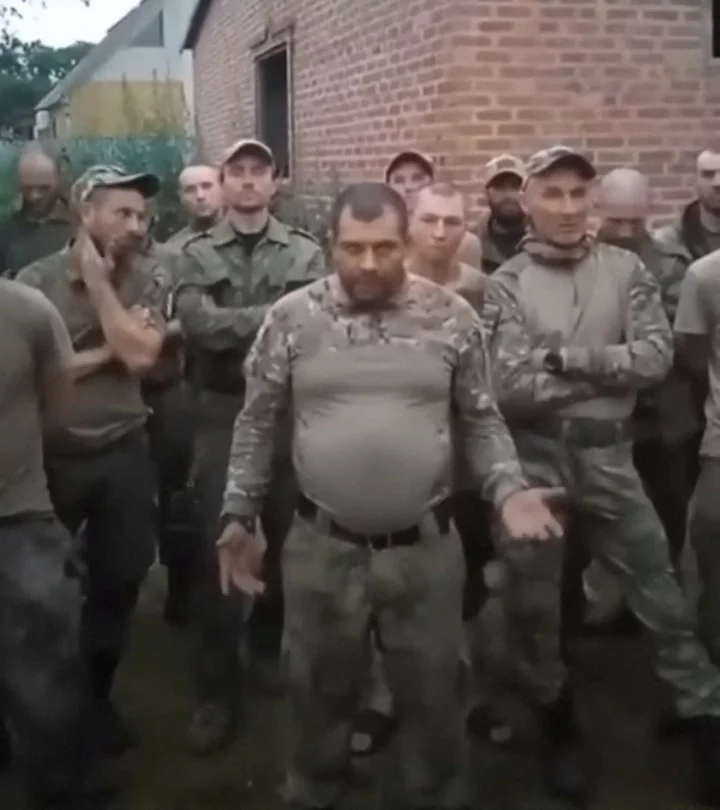
Russia recruits prisoners for Ukraine war as Putin replicates Wagner
Russia has taken the wheel from Wagner as the Kremlin has recruited up to 100,000 prisoners to fight in Ukraine. The practice was a trademark move of the late mercenary boss Yevgeny Prigozhin, who filled his group’s ranks with convicted criminals. The army unit, commonly known as Storm-Z, is reportedly seen as a disposable force in Vladimir Putin’s “special military operation”. It comes as the Russian prison population has dropped from an estimated 420,000 to around 266,000, according to deputy minister Vsevolod Vukolov, who disclosed the figures earlier this month. Russian state-controlled media reported that Storm-Z squads exist, that they took part in intense battles and some of their members received medals for bravery, but it has not disclosed how they are formed, or the losses they take. While the Russian defence ministry has never acknowledged creating Storm-Z units, the first reports of their existence emerged in April when the Institute for the Study of War cited what it said appeared to be a leaked Russian military report on the formation of the squads. RTVI, a Russian news website, said Storm-Z “is the same scheme as with the [Wagner] private military company. Prisoners sign contracts with the defence ministry, and after completing them they can go home or continue serving”. However, a Russian soldier who fought alongside members of the penal squad told Reuters that Storm-Z fighters “are just meat”. The soldier, from army unit no. 40318 who was deployed near Bakhmut in May and June, said he’d given medical treatment to a group of six or seven wounded Storm-Z fighters on the battlefield. In doing so, he had disobeyed an order from a commander - whose name he didn’t know - to leave the men. He said he didn’t know why the commander gave the order, but claimed that it typified how Storm-Z fighters were considered of lesser value than ordinary troops by officers. The soldier, who requested anonymity because he feared prosecution in Russia for publicly discussing the war, said he had sympathy for the men’s plight: “If the commandants catch anyone with the smell of alcohol on their breath, then they immediately send them to the Storm squads.” The UK ministry of defence addressed the emergence of the penal squads in its update on 24 October, saying: “Russia largely continues to rely on specially designated ‘Shtorm-Z’ units for local offensive operations in Ukraine.” It said: “Multiple accounts suggest the units are given the lowest priority for logistical and medical support, while repeatedly being ordered to attack.” The intelligence update added that the squads were “likely first fielded in 2022” and they highlight “the extreme difficulty Russia has in generating combat infantry capable of conducting effective offensive operations”. Read More The Body in the Woods | An Independent TV Original Documentary The harrowing discovery at centre of The Independent’s new documentary Live updates | Israeli troops briefly enter Gaza as wider ground incursion looms Europe's central bank is set to halt rate hikes as the Mideast war casts a shadow over the economy Putin presides over rehearsals of 'massive' Russian nuclear strike
1970-01-01 08:00
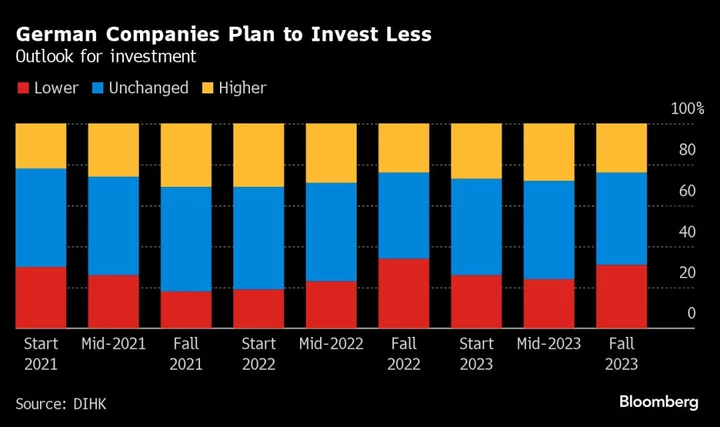
German Businesses Trim Investment Plans
German companies have cut their investment and hiring plans as they see no sign of a self-sustaining pickup
1970-01-01 08:00
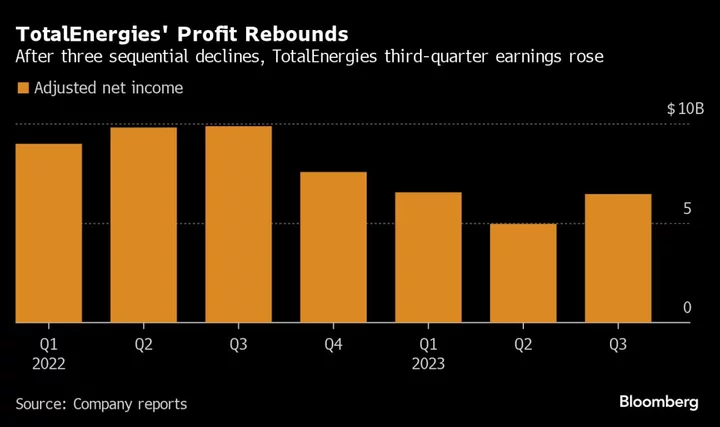
TotalEnergies’ Profit Rises on Higher Oil Prices, Refining
TotalEnergies SE’s third-quarter profit rebounded, ending a run of three consecutive declines as the French energy giant benefited
1970-01-01 08:00
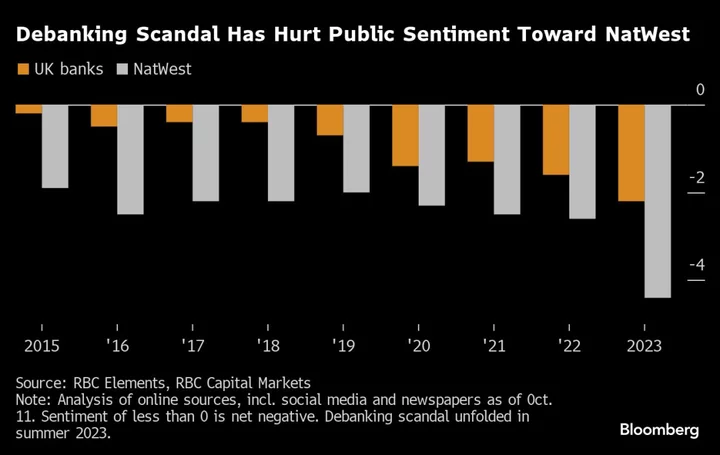
PizzaExpress Circles In on Wagamama: The London Rush
This morning’s news deluge offers good occasion to think about lunch early: Wagamama owner The Restaurant Group Plc
1970-01-01 08:00
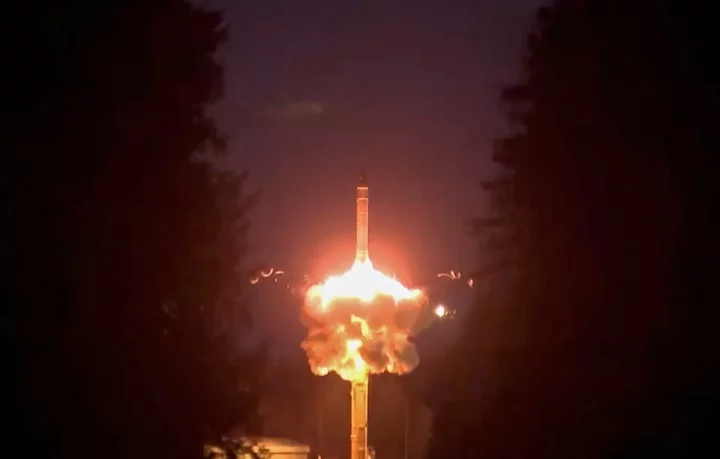
Ukraine-Russia war - live: Putin ‘rehearses massive nuclear strike’ as drones strike near Khmelnytskyi plant
Vladimir Putin has tested Russia’s ability to launch a massive retaliatory nuclear strike as he pulled the country out of an international test ban treaty. “Practical launches of ballistic and cruise missiles took place during the training,” Russian defence minister Sergei Shoigu said. A Yars intercontinental ballistic missile was fired in Russia’s far east, a nuclear-powered submarine launched a ballistic missile from the Barents sea, and long-range bombers test fired air-launched cruise missiles, according to the Kremlin. On Wednesday, Russia’s parliament unanimously approved legislation pulling the country out of the international Comprehensive Nuclear Test Ban Treaty, designed to limit the proliferation of nuclear weapon testing. It comes as a Russian drone attack damaged buildings near the Khmelnytskyi nuclear power plant in western Ukraine, wounding 20 people. The Ukrainian air force destroyed all 11 Russian drones, according to the military. Damage was caused by blast waves and falling debris. “At night, the enemy struck territory near the Khmelnytskyi nuclear power plant. As a result of the explosion, windows in administrative and laboratory buildings have been damaged,” Ukraine’s Energy Ministry said on the Telegram messaging app. Read More Russian drones likely targeted Khmelnytskyi nuclear power station, Zelensky says Business owners in a Ukrainian front-line city adapt even as 'a missile can come at any moment' Russian forces simulate nuclear strike as upper house rescinds ratification of test-ban treaty
1970-01-01 08:00

Unilever Rules Out Big M&A as New CEO Sets Out His Strategy
Unilever Plc ruled out any major acquisitions as new Chief Executive Officer Hein Schumacher set out a strategy
1970-01-01 08:00

Putin presides over rehearsals of ‘massive’ Russian nuclear strike
Vladimir Putin has presided over a rehearsal to deliver what the Kremlin described as a “massive” nuclear strike, including the test launch of multiple ballistic missiles. While Russia holds similar rehearsals every autumn, Wednesday’s show of force came just hours after Moscow’s withdrawal from a significant nuclear test ban treaty and as its invasion of Ukraine approaches its second winter. Footage broadcast on state television showed the Russian president overseeing the annual exercises, dubbed “Grom”, via video call. The purpose of the drill was to “deliver a massive nuclear strike... in response to an enemy nuclear strike”, said defence minister Sergei Shoigu. The Kremlin said a Yars intercontinental ballistic missile was launched from a test site to a target in Russia’s far east, a nuclear-powered submarine launched a ballistic missile from the Barents Sea and Tu-95MS long-range bombers test fired air-launched cruise missiles. Russia, which has the world’s largest nuclear arsenal, has passed a bill in parliament that would revoke its ratification of a key nuclear test ban treaty, the Comprehensive Nuclear Test Ban Treaty (CTBT). Though it has never formally come into force, the CTBT has helped deter nuclear weapons testing around the world, with only North Korea conducting an explosive nuclear bomb test this century. Ukraine has said Russia’s withdrawal of its CTBT ratification was an attempt at “nuclear blackmail”. Mr Putin, who will be sent the bill for final approval, has said revoking Russia’s ratification would “mirror” the stance of the US, which has signed but did not ratify the nuclear test ban. Video footage of Wednesday’s military exercise released by the Russian defence ministry showed the land- and submarine-launched missiles piercing the night sky with loud roars, while nuclear-capable bomber aircraft departed from an airfield under the cover of darkness. “Under the leadership of the supreme commander-in-chief of the armed forces of the Russian Federation, Vladimir Putin, training was conducted with the forces and means of the ground, sea and air components of the nuclear deterrent forces,” the Kremlin said in a statement. “During the training, practical launches of ballistic and cruise missiles took place. The tasks planned in the course of the training exercise were fully accomplished,” it said. The latest developments have raised widespread concerns that Moscow could resume nuclear testing in attempts to discourage the West from continuing to offer military support to Ukraine. Russia’s deputy foreign minister Sergei Ryabkov said earlier this month that Moscow will continue to respect the ban and will only resume nuclear tests if Washington does it first. On Wednesday, Mr Ryabkov said the Russian foreign ministry had received proposals from the US to restart discussions regarding strategic stability and arms control matters. However, he pointed out that, given the current political climate, Moscow does not view it as feasible. “We aren’t ready for it because the return to a dialogue on strategic stability... as it was conducted in the past is impossible until the US revises its deeply hostile policy course in relation to Russia,” Mr Ryabkov told reporters in comments carried by Russian news agencies.
1970-01-01 08:00
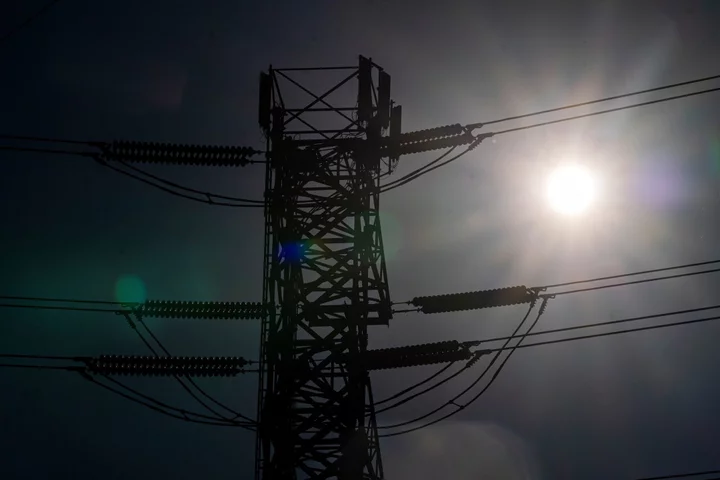
EU to Include Greece-Egypt Power Link on Mutual Interest List
The European Union proposed to include a plan to link the power grids of Greece and Egypt on
1970-01-01 08:00
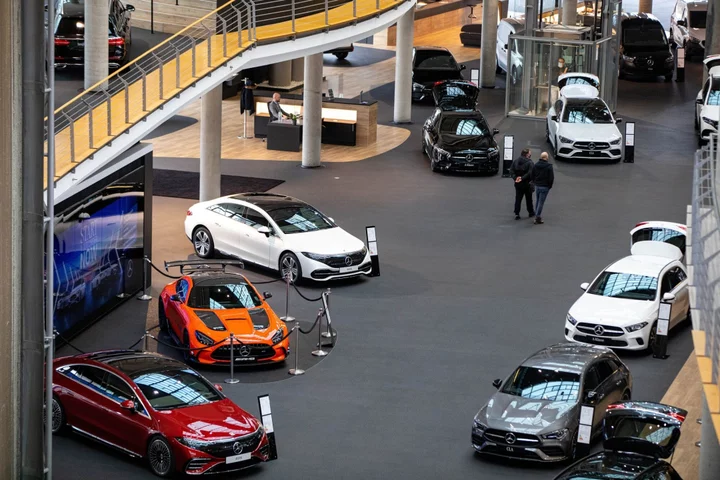
Mercedes Sees Profit Margin Pressure on Costs, Weaker Demand
Mercedes-Benz Group AG sees car-making margins at the low end of its forecast this year due to rising
1970-01-01 08:00

Hyundai’s Profit Beats Estimates on Luxury Car and EV Growth
Hyundai Motor Co. reported third-quarter earnings that beat analyst forecasts thanks to strong sales of luxury models and
1970-01-01 08:00
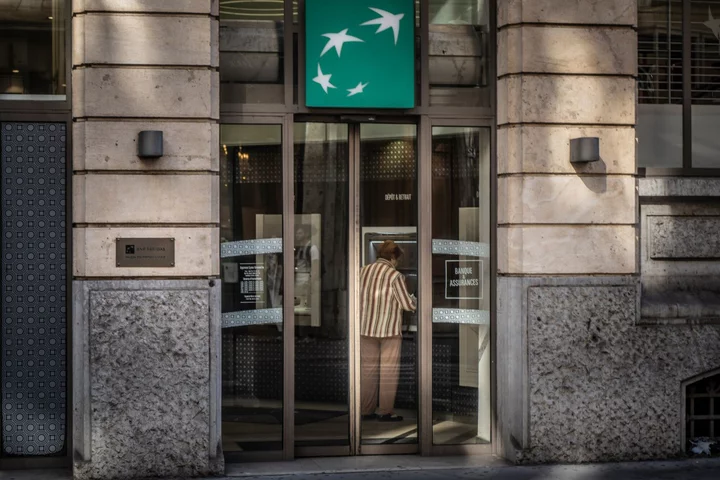
BNP Paribas Bond Trading Slides as EU Banks Trail Wall Street
BNP Paribas SA posted weaker revenue from fixed-income trading in the third quarter, adding to evidence that European
1970-01-01 08:00

StanChart Profit Misses Estimates With China Impairments
Standard Chartered Plc’s profit missed estimates in the third quarter as the lender took charges related to investments
1970-01-01 08:00
